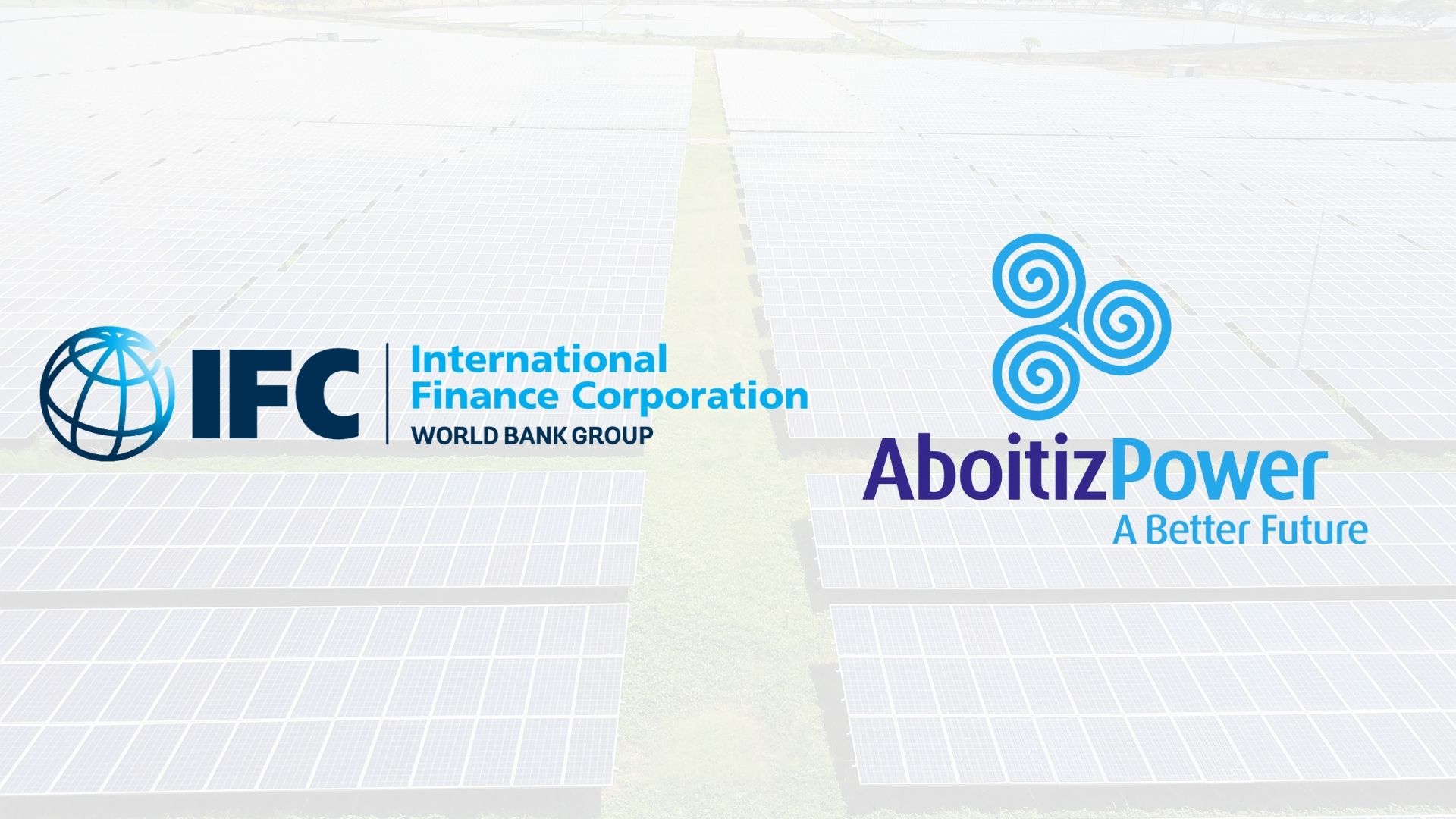IFC, AboitizPower to study RE as baseload power
- March 31, 2022
- 0

The International Finance Corporation (IFC) and Aboitiz Power Corporation have signed an agreement to explore and help assess the viability of renewable energy (RE) as a source of baseload power in the Philippines.
Under the agreement, IFC will be conducting a joint in-depth study that would explore a mix of different RE technologies that could replace conventional power sources and reduce carbon dioxide emissions, as well as the technical and economic viability of the mix in the context of the country’s power requirements and supply-demand patterns.
The study will also tackle hybrid solar photovoltaic and battery energy storage solutions.
Baseload plants, simply said, are those that provide stable power supply to a grid. In the Philippines, coal plants are the most common type of baseload generators. Meanwhile, usual criticisms against RE plants like solar and wind farms stem from their being intermittent power providers, meaning they are not able to contribute electricity to a grid 24/7.
“Given its climate commitments, IFC is confident that renewables will offer a viable path forward for the Philippines. Harnessing cleaner and natural resources, including solar and wind, will enable the country to diversify its energy mix and improve energy security while also tackling climate change impacts,” Alfonso Garcia Mora, IFC Regional Vice President for Asia and the Pacific, said in a statement.
“Our engagement with IFC is a significant step in mapping an effective climate action roadmap for the company. Based on the country’s natural resources, climate, and geography, we look forward to learning more about how we can generate baseload power that is technically and financially feasible as well as scalable,” said AboitizPower President and CEO Emmanuel Rubio.
IFC is a member of the World Bank Group. AboitizPower is the country’s largest power generation company. Coal comprises a large chunk of the company’s assets, the latest being Unit 1 of the GNPower Dinginin plant, which at 668 megawatts is the Luzon Grid’s largest generator. Last year, AboitizPower committed to invest Php190 billion to up its RE assets to half of its generation portfolio by 2030.
Data from the Independent Electricity Market Operator of the Philippines showed that as of February 2022, 21.2% of the country’s generation mix comes from RE. Of that figure, 10.7% or 753 gigawatt-hours (GWh) come from geothermal power, 5.3% or 370 GWh from hydro, and 1.9% or 132 GWh from both wind and solar combined.
The Department of Energy targets a 35% share for RE in the country’s energy mix by 2030 and 50% by 2040.In November last year, the Asian Development Bank partnered with the Philippine and Indonesian governments for the pilot implementation of the energy transition mechanism (ETM) in the region. Under the ETM, coal plants would be closed in favor of developing RE facilities.